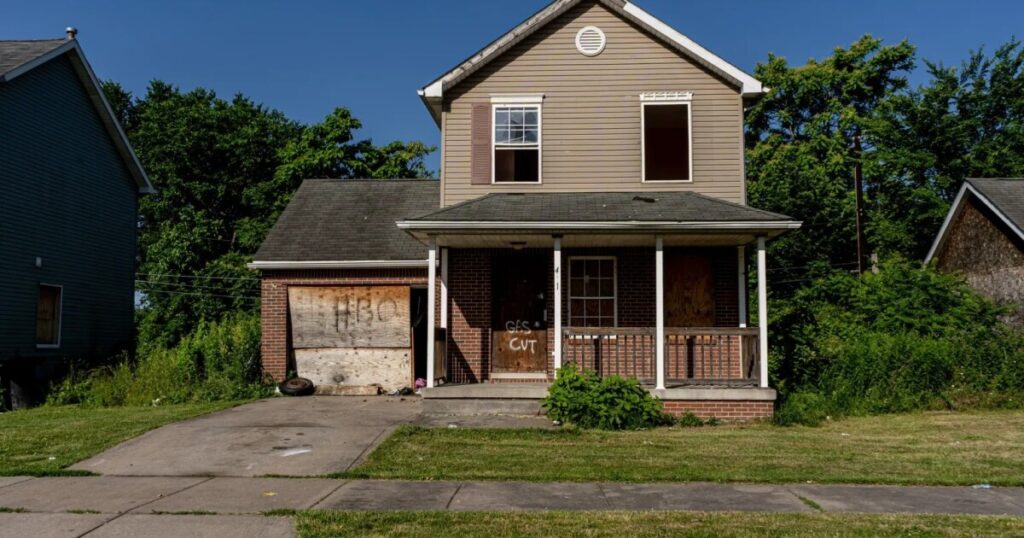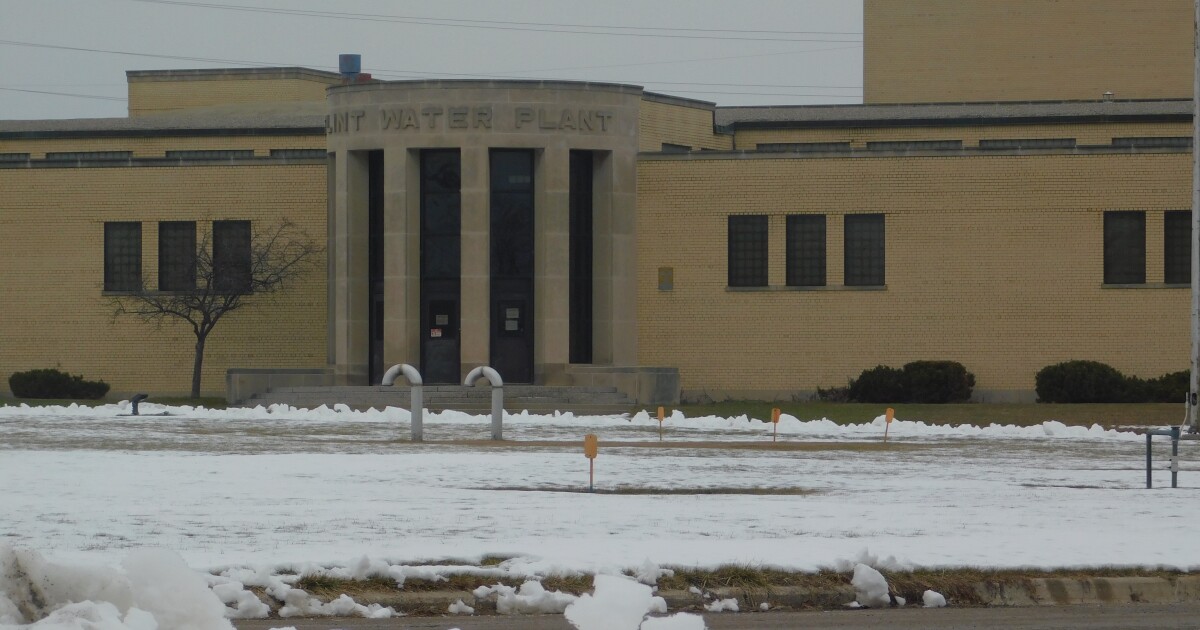This story was originally published July 9, 2025, by Outlier Media.
Imagine investing in a real estate portfolio with just $50 through a crypto wallet. This enticing opportunity was presented by RealT, a Florida-based startup, to foreign investors, highlighting a collection of 39 homes on Detroit’s eastside. However, a year later, the ownership of these homes remains unresolved, raising significant questions about the company’s operations.
RealT, known for its “fractional ownership” model, allows investors to buy shares in properties using cryptocurrency. This venture amassed over $2.72 million from investors for properties that were originally priced at $1.1 million. Despite this success, the deal has yet to close, and the properties remain under the ownership of Brewer Park Homes LDHA LP, leaving investors in the dark.
The company, led by brothers Remy and Jean-Marc Jacobson, has built a reputation as a unique real estate marketplace, subdividing properties into digital tokens mainly for foreign investors. However, U.S. residents are excluded from participating.
Questions surrounding RealT’s transparency and business ethics have emerged. Investors are reportedly unaware of the actual properties they own, with many never having seen the 650 tokenized properties. Furthermore, the promised ownership through tokens is questionable, as RealT lacks the deeds to these properties.
Outlier Media’s investigation into RealT has uncovered potentially deceptive practices. The company has allegedly sold tokens for properties it does not own, misrepresented property conditions, and continued to pay dividends on properties that have not generated rent for extended periods.
In response to these issues, the City of Detroit has initiated legal action. Last week, it filed “the largest nuisance abatement lawsuit” against RealT, aiming to compel the company to bring its entire property portfolio up to code. “The citizens of Detroit are paying the price in the form of their neighborhoods being inundated with dangerous structures that invite squatters and criminal activity,” the complaint states.
Despite facing legal and operational challenges, RealT continues to tokenize new properties, adding 87 more this year alone. Concerns are mounting among investors, with some likening the situation to a “Ponzi/Madoff-type scheme.” A long-time investor, who chose to remain anonymous due to safety concerns, stated, “If this is true, the very notion of a Real World Asset is void, and I would call into question my entire investment strategy.”
More properties, more problems
Detroit serves as the focal point for RealT’s operations, with the company claiming ownership of more properties here than anywhere else. However, the company’s practices have raised alarm among industry experts and tenants alike.
RealT reportedly owes millions in unpaid taxes and blight tickets to the City of Detroit. Additionally, the company has not filed essential property transfer affidavits for hundreds of properties, a legal requirement in the state.
Mark Hays, a senior policy analyst with Americans for Financial Reform, criticized RealT’s model, stating, “You have absentee landlords that are not doing right by their tenants and not being held accountable.”
Caught in the middle
RealT’s business model involves signing purchase agreements before offering properties on its platform. However, the reality has been different for the 39 homes in question, which remain under the ownership of Brewer Park Homes LDHA LP.
Kathy Makino-Leipsitz, the state’s listed owner of Brewer Park Homes, confirmed that RealT has not completed the purchase. “It’s been under purchase agreement for over a year but hasn’t closed,” she said.
RealT’s spokesperson, Shaun Wilson, cited inadequate documentation from the seller as the reason for the delay, adding that RealT has until May 2026 to finalize the purchase.
In the meantime, tenants like Chiona White, who rents a Brewer Park home, find themselves in a state of uncertainty. White, who moved into the home with her children in 2023, reported spending $5,000 on repairs due to a lack of maintenance support from RealT.
More deed questions
RealT’s challenges extend beyond Detroit’s eastside. The company faces scrutiny over its property management practices and ownership claims.
Outlier Media’s investigation into 25 properties revealed inconsistencies in ownership and property conditions. Many properties are delinquent on taxes, with a significant number vacant despite claims of occupancy.
RealT’s spokesperson mentioned “title issues” as a reason for delayed deed transfers but did not provide further details.
Baffling business model
RealT’s lack of transparency regarding property purchase agreements has raised concerns among investors, leading to doubts about the actual value of their investments. Real estate experts have questioned how the company justifies its pricing, with some properties listed at double their original purchase price.
Despite these challenges, RealT continues to promise high returns to its investors, a claim that industry experts find implausible given the properties’ conditions and rental income potential.
Scrutiny builds
RealT now faces a public nuisance lawsuit from the City of Detroit, demanding compliance for all properties and holding the Jacobsons personally accountable for the associated costs. Additionally, the company could face fines for failing to submit property transfer affidavits.
The Michigan State Housing Development Authority (MSHDA) is also monitoring RealT’s compliance with low-income housing regulations. “They have inherited issues and are actively working through them,” said Katie Bach, MSHDA’s communications director. Failure to comply could result in fees and legal action from the state’s attorney general.
This article first appeared on Outlier Media and is republished here under a Creative Commons Attribution-NonCommercial-NoDerivatives 4.0 International License.
—
Read More Michigan News










